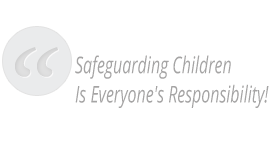



The internet has become an integral part of our children’s lives. A world has opened up which offers many positive opportunities.
Children start using computers from a very early age and are increasingly using the Internet more and more whether it is at home, in school, on their mobile phones or on a games console. Internet Safety and knowing how to help protect children and young people online, is therefore essential.
Keeping children safe in the real world is just the same in the virtual world. It is important that parents understand enough about the Internet to keep children safe from harm but it is equally important to equip children with the skills they need to keep themselves safe so they can experience the Internet positively and responsibly.
As technology develops, the internet and its range of content services can be accessed by children, young people and adults through various devices including mobile phones, tablets, text messaging and mobile camera Smart Phones as well as computers and game consoles. As a consequence the Internet has become a significant tool in exposing children to possible risks and dangers including the distribution of indecent/pseudo photographs and video clips of children and young people.
Internet chat rooms, social networking sites, gaming sites, instant messaging services, apps, discussion forums and bulletin boards can all be used as a means of contacting children with a view to grooming them for inappropriate or abusive relationships. Grooming is where a person establishes contact with the child and gains their trust and confidence in order to sexually abuse them. In some situations an adult may sometimes pose as a child in order to make initial contact – enticing the victim into abusive relationships or into making pornographic images for distribution or to perform sexual acts for a webcam. An indecent image of a child refers to any images (still or moving) of children apparently under 18 years of age, involved in sexual activity or posed to be sexually provocative.
Contacts made initially online are likely to be carried on via email, instant messaging services, mobile phone, social networking, gaming sites, apps and text messaging. There is a growing cause for concern about the exposure of children to inappropriate material via interactive communication technology e.g. cyber bullying, adult pornography, sites that promote self harm, suicide, eating disorders, online hate material, and extreme forms of obscene, violent and offensive material.
For further information on keeping your child safe online please go to: